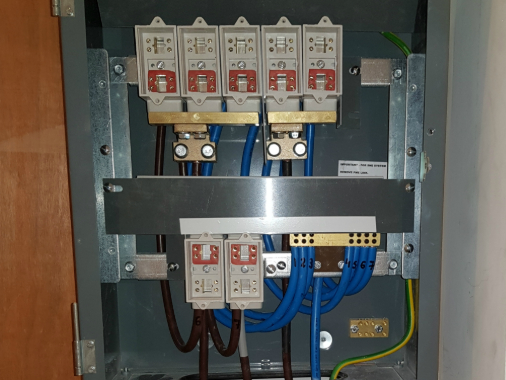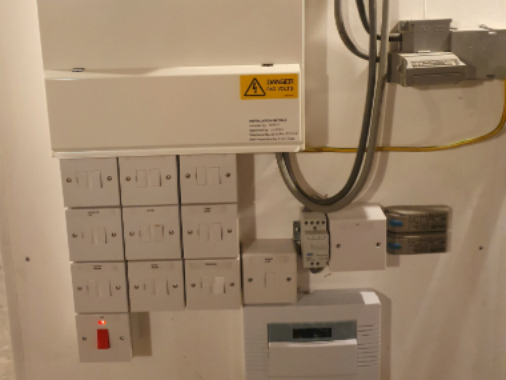Before purchasing a new home, homebuyers often request electrical safety certificates. The mortgage lender or surveyor may recommend that a report is obtained to ensure there are no serious problems with the electrical supply. Homeowners often call in a contractor to ensure that their home is tested before the property being placed on the market.
If electrical problems or risks are identified, we supply free quotations for major work so that the buyer and vendor are clear about the extent of the problem. The cost then is accurately used in further negotiation, helping all parties to reach a swift and fair conclusion.

Commercial electrical testing and inspection are extremely important for work and office safety. Faulty wiring can lead to all sorts of life-threatening dangerous situations like fires if the devices are not well maintained. Having the inspections performed on a regular basis will ensure that all the wires and appliances are in top working condition, therefore lowering the risk of an accident.
Testing commercial electrical equipment not only plays the main role in the proper functioning of the electrical system but also helps directly into energy conservation both at the business level and from an environmental perspective.
All electrical installations change with age and use. They should be inspected and tested at regular intervals by to check whether they are in a satisfactory condition for continued use. Safety checks are commonly referred to as 'periodic inspection and testing.
A periodic inspection will:
Once faults have been rectified and your electrician has issued you with the relevant paperwork, Electrical Installation Certificate (EIC) or Minor Works Certificate (MW) these should be kept together with the Electrical Installation Condition Report (EICR) to prove all faults have been rectified by following BS7671.
If the unthinkable happens and someone receives a shock from part of your installation or if there is an electrical fire in your building, then a court, inquest or insurance company will certainly want to see this EICR Fixed Wire Testing report which makes it very important document.
All electrical installations should be inspected and tested every 3 to 5 years for continued service. Electrical safety checks are commonly known as ‘periodic inspection’ or ‘domestic electrical installation condition report’.
PAT testing or portable appliance testing is an important part of any health & safety policy. The Electricity at Work Regulations places a legal responsibility on employers, employees and self-employed persons to comply with the provisions of the regulations and take reasonably practicable steps to ensure that there is no danger using such equipment. This in effect requires the implementation of a systematic and regular program of maintenance, inspection, and testing. The Health & Safety at Work Act (1974) places such an obligation in the following circumstances:
Emergency lighting is critical to the health and safety of your staff, Innox Electrical team will test your emergency lighting to ensure that your building meets the code of practice for emergency lighting (BS 5266-1).
Emergency lighting offers an early insight into emergencies.
Emergency lights are powered independently as they need to be self-sufficient even during a power failure. They are installed with the backup battery which is kept at full charge when needed.
An electrical fault can stop your business in its tracks and we know how frustrating this can be. We pride ourselves on our fault finding and our ability to get to the bottom of the problem quickly.
We have the skills, experience and test equipment to be able to fault find effectively and carry out a methodical approach to our fault-finding that ensures we get it right. We do not use guesswork or trial and error to find electric faults and if this has been your experience then maybe you have been paying for parts and labor you do not even need.
